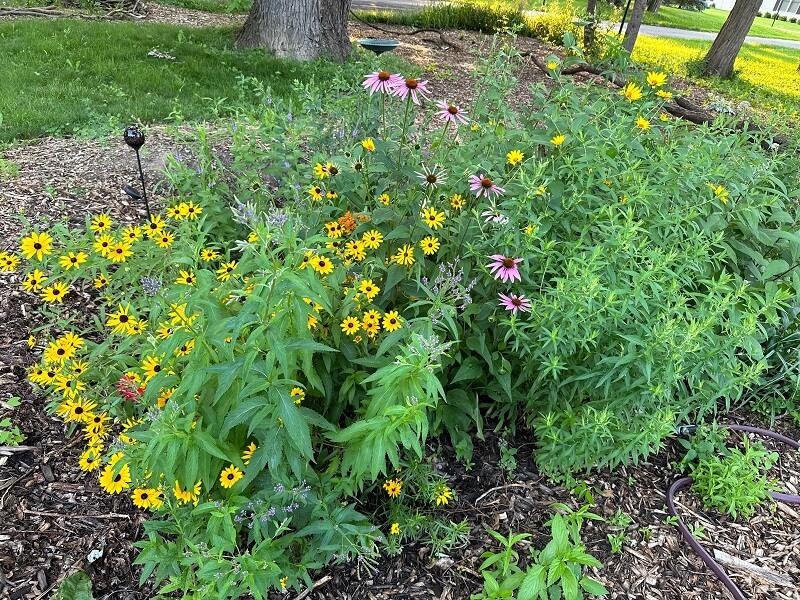What's more quintessentially summertime than bees buzzing happily around colorful flowers? One gardener proudly posted photos from their second-year rain garden to the subreddit r/NativePlantGardening, admiring the prolific blooms and pollinators.
"The rain garden was the second step of a full yard overhaul," they captioned the photos. Their other pictures included brightly blooming purple coneflowers, tangerine-colored daisies, black-eyed Susans, lavish red cardinal flowers, and more.


Other commenters were awed by the display of so many thriving native plants. "The color is amazing!" one person enthused.
"Your garden is lovely," another wrote. "What a great advertisement to sell others on natives."
For homeowners who want a beautiful yard that's easy to maintain, there's really no better option than native plants. Since they've evolved to thrive in their ecosystems, natives are easy to grow, generally requiring significantly less water and maintenance than grass. They also provide nourishment and habitat to pollinators — like the original poster's buzzing bees — who, in turn, maintain a thriving food chain.
As the OP points out, this garden's special feature is its rain-gathering capabilities. According to the Groundwater Foundation, a rain garden "is a garden of native shrubs, perennials, and flowers … designed to temporarily hold and soak in rainwater runoff that flows from roofs, driveways, patios, or lawns."
Not only does this prevent flooding but it provides another critical effect: filtering out contaminants.
Rain gardens can effectively remove up to 90% of nutrients and chemicals and up to 80% of sediments from rainwater runoff, according to the Groundwater Foundation. This is critical because runoff that flows from roads and roofs is often full of contaminants, like car tire particles, oil, and agricultural runoff, so filtering it out from the rest of the ecosystem is highly beneficial.
And if those reasons didn't convince you of the value of a rain garden, all you have to do is look at the vibrant wildflowers.
"Oh man, I love rattlesnake master so much," one person wrote in response to a photo of the plant, which had just put out its first stalk. "Almost as much as the bees do!"
"I can't wait to see it in bloom," the OP replied. "Looking forward to a whole patch."
Join our free newsletter for easy tips to save more and waste less, and don't miss this cool list of easy ways to help yourself while helping the planet.









